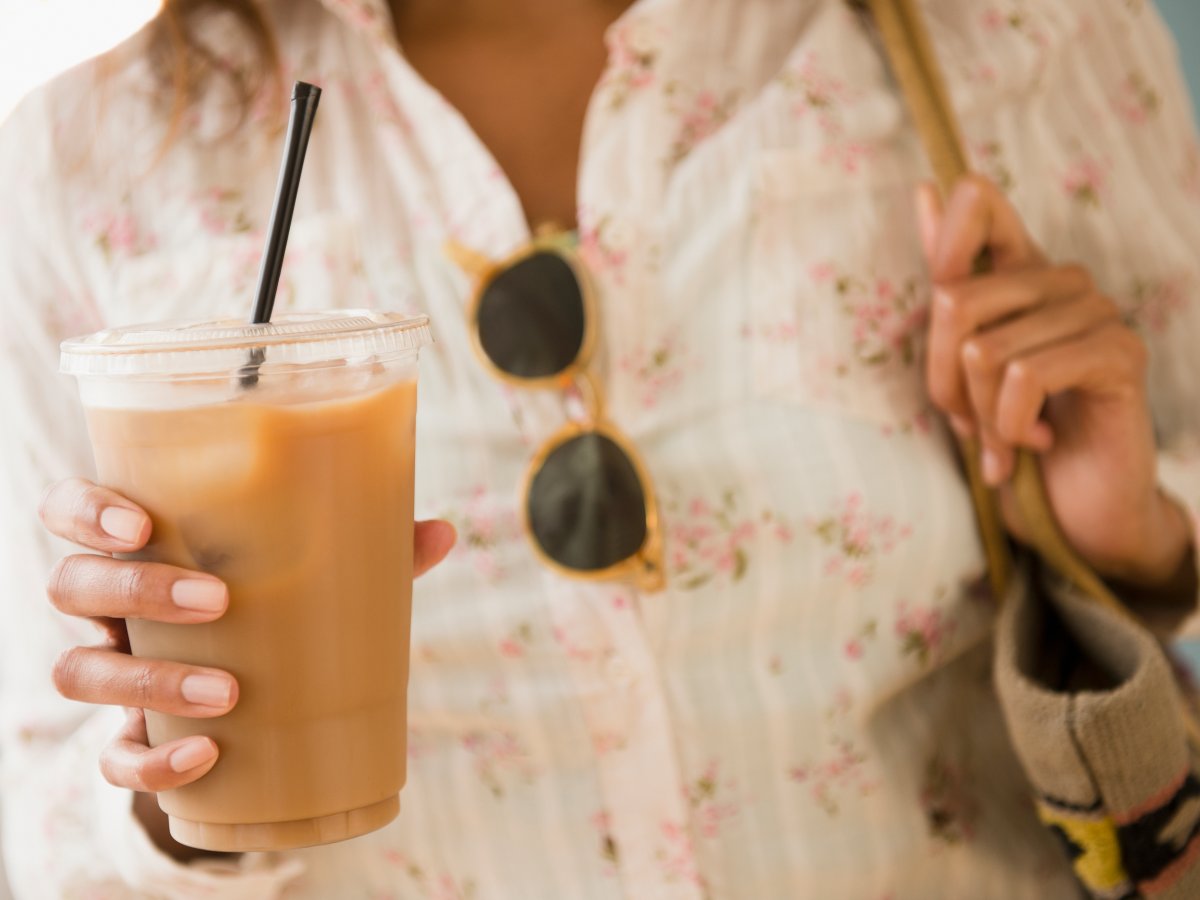The following information may prevent you from ever ordering an icy beverage in a public place again: there’s a good chance that the ice in your drink has traces of fecal coliform (a.k.a. poop bacteria).

A test conducted in the U.K. and featured on the BBC’s consumer Watchdog series found fecal coliform in the iced drinks of three popular coffee chains, including Starbucks. (The other two — Costa Coffee and Caffe Nero — are U.K.-only chains.)
WATCH BELOW: Here are 5 things a Canadian food safety expert would never eat

The levels of contamination found were especially shocking: 30 per cent of the iced drinks at Starbucks and Caffe Nero tested positive for fecal coliform, and a whopping 70 per cent of the drinks at Costa had it.
Health repercussions of ingesting the bacteria include upset stomach, diarrhea, ear infections and rashes.
Tony Lewis, a spokesperson for the food-safety group, Chartered Institute of Environmental Health, said to Watchdog that these levels were “concerning” and added, “these should not be present at any level, never mind the significant numbers found.”
- Canadian man dies during Texas Ironman event. His widow wants answers as to why
- Several baby products have been recalled by Health Canada. Here’s the list
- ‘Sciatica was gone’: hospital performs robot-assisted spinal surgery in Canadian first
- Dating apps ‘worse than ever’ for your privacy, report warns
This isn’t exactly news to food safety experts, though. A 2016 study conducted by Richard Meldrum, associate director of the School of Occupational and Public Health at Ryerson University, found that of 64 ice samples collected from 40 food establishments in Toronto, 7.8 per cent of them tested positive for fecal coliform. What’s more, 35 per cent of the establishments had dirty ice storage facilities and 15 per cent had visible biofilm on the ice machines.
“This has always been an issue with ice,” says Keith Warriner, a food safety professor at the University of Guelph. “It’s because these places use municipal water, which has chlorine in it, to make ice, so they have to take the chlorine out otherwise the ice will taste awful. They’ll pass the water through a filter first, but if that filter hasn’t been cleaned or changed, there will be a buildup of biofilm bacteria that can have things like fecal coliform and E. coli.”
Other sources of it are related to handling practices, like if a person doesn’t wash their hands after using the bathroom and then touches the ice, bucket or utensils.
But it’s important to note, he says, that fecal coliform does not necessarily derive from fecal sources, so maybe your Starbucks doesn’t have poop in it, per se. The bacteria can also be found in soil and insects, as well as other things in the environment like fruits and vegetables, according to Live Science.
READ MORE: Unsafe meat storage, raw fish among safety violations at Trump’s Mar-a-Lago
The reason ice is such a great environment for fecal coliform, though, is because the cold preserves the pathogens.
“Once you put it in a drink, you’re basically ingesting it straight,” Warriner says.
Unless that drink is straight booze. The pathogens on contaminated ice will be killed off after five minutes in a glass of straight alcohol, like vodka, Warriner says. But if it’s in a mixed drink, soft drink or coffee, the bacteria will survive.
He says if you’re getting ice from a commercial ice maker, like at the movie theatre or in a hotel, check to see if the machine has a buildup of biofilm around the opening. It will look slime-like and range in colour from yellow to brown.
“Unfortunately, these ice machines don’t get cleaned very often,” he says.
All three coffee chains responded to the BBC study to say they will be reevaluating their ice-making and handling procedures.
In a statement to Global News, a Starbucks Canada spokesperson said: “We take hygiene and cleanliness extremely seriously. We have moved quickly to conduct our own investigation into the claims about the stores you have identified. All employees nationwide have received updated training on our high standards of hygiene including ice handling. Nothing is more important to us than the safety of our customers.”






Comments